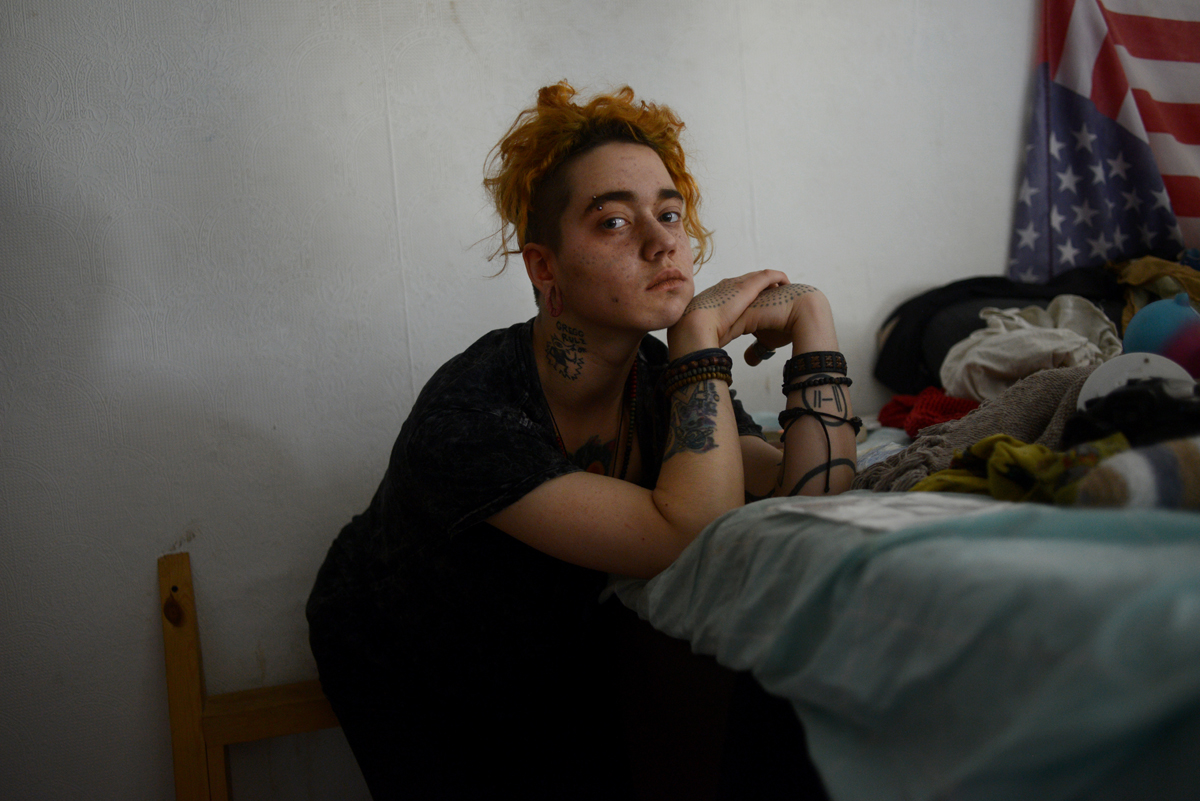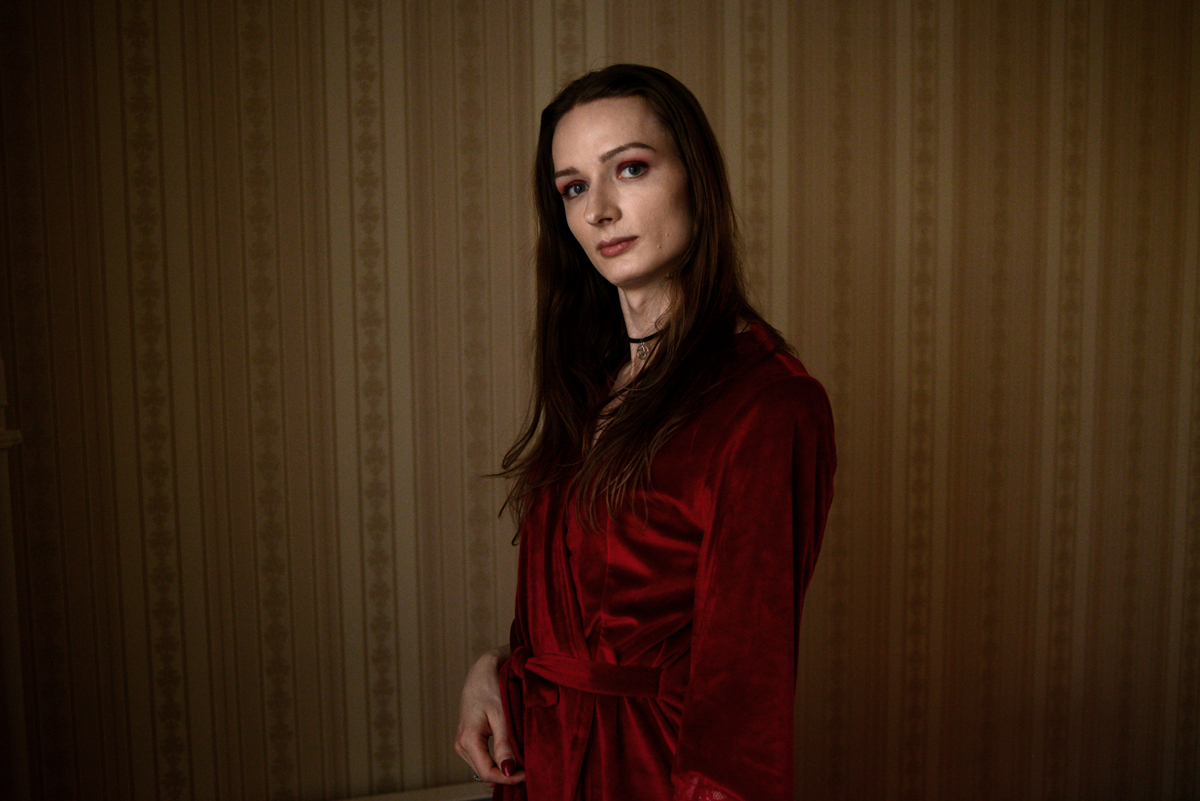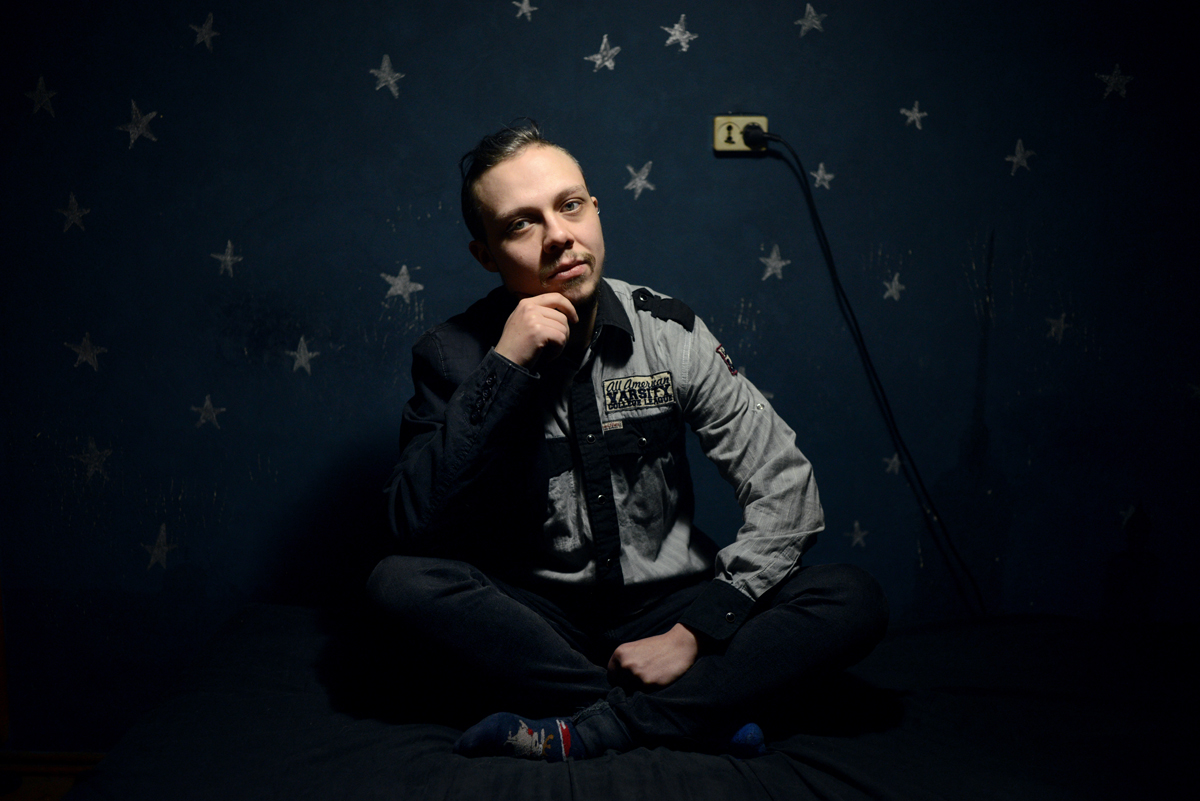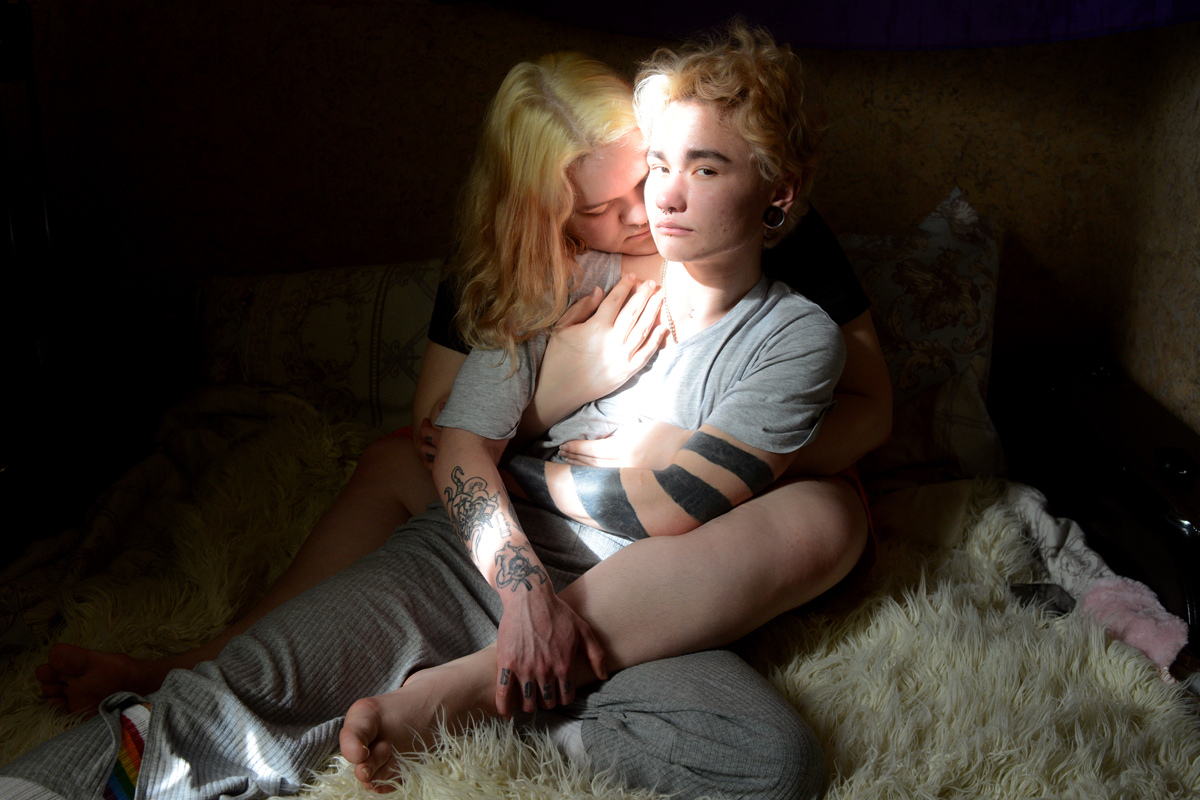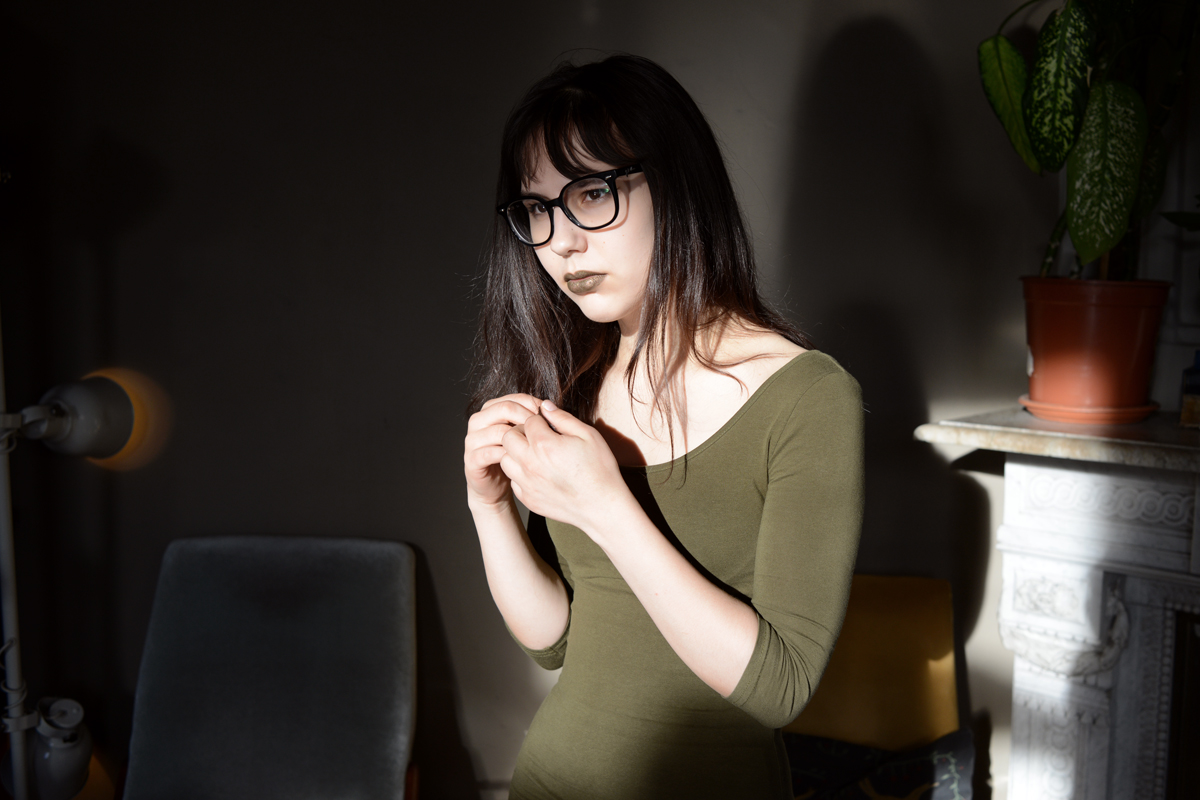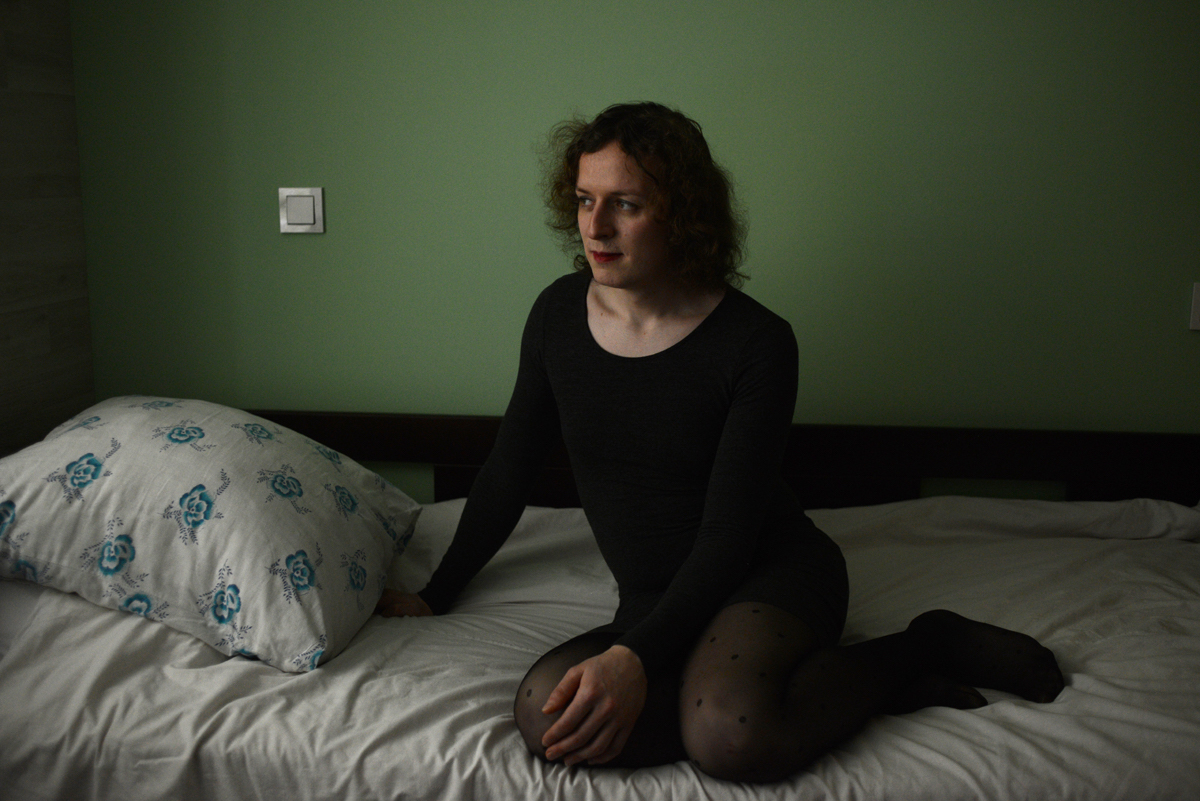In a country where identifying as LGBTQ+ can threaten your existence, the openness with which Ponomarev’s participants share their stories carves a path for others to do the same
An amendment to the Russian constitution, proposed in July 2020 and signed into law in April 2021, outlaws same-sex marriages and bans transgender people from adopting children. The amendment is just one of several targeted at the transgender community, intensifying Russia’s years-long crackdown on LGBTQ+ rights, and further discriminating against transgender people, who already have no access to transition-related healthcare services, or official support against discrimination.
Oleg Ponomarev has been photographing transgender men and women in their homes in Russia for Transition – a series that received first prize in the Portraits category of the 2021 World Press Photo Contest. The particroipants are among the first transgender people in the country to openly discuss their experiences without hiding their identities. The photographer writes: “The stories of these people are not stories of the struggle for the rights of any particular community. These are the stories of the struggle for the basic human right: the right to exist.”
In a country where identifying as LGBTQ+ can threaten one’s existence, the openness with which Ponomarev’s participants share their experiences carves out a path for others to do the same. Here, Ponomarev shares the stories of Ekaterina, Ignat, Mark, Yura, Marina and Sofia.
Ekaterina
“I never ask to be addressed in the feminine gender. I see no point in this. I don’t want to bother anyone, or look for the guilty ones, and I don’t understand such a position. Nature has messed up, but the responsibility has shifted to society — it is intolerant and keeps options closed. I don’t feel that anyone is imposing anything on me. You can call me even Ivan if you have the heart to say this. I started transitioning at 31, when my third marriage ended. In the past, I did not have enough information. My psychological state began to scare me, everything was moving towards a bad outcome, but I wanted to live. It’s been about a year and a half since I started the transition, and now I am here, in a state I only visited in my wildest fantasies. There are plenty of reasons to be proud. Nature has done everything it could to spoil my life, but I am still alive, having fun, doing what seemed impossible.”
Mark
“It is very important not to view gender transitioning as a curse or a punishment. I often hear trans people use expressions like, ‘I was born in the wrong body,’ or ‘gender transitioning is a curse I have to deal with’. But it is possible to look at this situation from a different perspective. Being a trans person turned out to be an incredible experience for me. The experience of self-improvement and self-acceptance. If I were born a man, many things in my life wouldn’t have happened. Maybe I wouldn’t have become an avant-garde musician, or musician at all. I would be living a completely different life. I don’t want a different life — I really love mine. The more unveiled faces and personal stories we have, the easier it will be for society to accept us. I want us to be viewed as equals, not viewed from up high.”
Ignat
“I cannot remember a single happy day at school. The bullying continued throughout all nine grades. I couldn’t bear staying there for two more years. Both students and teachers pressured me. I was a child, but they spoke to me as if I was a criminal who had killed their entire family. It was horrifying. Even the school psychologist bullied me. I opened up to him about wanting to use masculine pronouns, and asked him to keep it a secret. He was the first stranger I confided in about everything – it was a huge mistake. When the whole school found out, insults and humiliation became permanent. It was a living hell… Thanks to the transition, I stopped feeling like a stranger in my own body.”
Yura
“Growing up my mother had uncontrolled outbursts of aggression. She would hit me right at the doorstep. When I was 12, I jumped off a bridge but survived. A year later, my mother committed suicide. At the age of 17 I was adopted. The woman who adopted me had a daughter, but we could not find common ground. Her mother saved me from the orphanage, but our family did not work out. I left home and got a job. While talking to a manager, I realised through their voice that they were going through hormonal therapy. When we first met, it was raining, and I had nowhere to go, but he offered me a place to stay. In the morning I found that all my torn clothes were stitched up, and tea was brewed in a thermos. I was looking at it and could not believe my eyes. He taught me about hormone therapy, we became close, and are now friends.”
Marina
“Adults have been saying homosexuality is bad since I was a kid. Then religion became involved and they told me it was a sin. I felt they wanted me to be something I did not want myself. I was ready to do anything just to be a good child for my parents. I lived that way until I turned 18. At school, I was bullied. They cut my hair off, kicked me, and spat on my face. The rules children have at school are like those of wild beasts. After the transition, everything got better. Most of the time I like what I see in the mirror, but it’s more about formation of personality. The most important changes did not come from hormonal drugs, but from what I read, observed and thought. People should be taught that their feelings are not sinful and there is nothing shameful about them. The work should not be done by a specific child, but by society. People shouldn’t be beaten at home or in the streets in order to learn how to interact with society. To do this, of course, you need to change the law. LGBT adolescents do not feel protected at home, at school, or on the streets. That is the root of the problem.”
Sofia
“I started transitioning at 32, but I had experienced certain feelings from the age of three. I enjoyed making outfits for girls, for example. Back then, I lived with my mother who was a rather authoritarian person. She imposed ideas on me, making me believe that there was only one right way. My mother saw me in a certain way, and I had to live up to that. My role was the knight from a fairytale, but I’ve always had a vague desire for something different. My mother still hasn’t accepted my transition. To her, I am a boy, a son, and that is it… I fell in love with Saint Petersburg and moved there. The city is often referred to as the ‘gay capital’ of Russia, but even here, conflicts are not uncommon. Once I was dressed as a woman, walking with a friend of mine. Two drunk men started harassing us. I started talking to them, but they began beating me instead. I did not respond, bearing the blows silently…. It turned out that they were two policemen off duty.”

